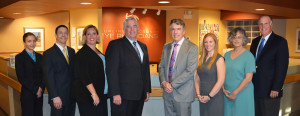Shortage of Shingles Vaccine
s

Last October, 2018, the FDA approved Shingrix, a new shingles vaccine for adults 50 and older who have a healthy immune system.
We wrote about the significance of the Shingrix vaccine and how it may impact our patients.
The Shingrix vaccine is two-dose vaccine series. The second dose is to be given 2-6 months following the first. Vaccination is recommended for healthy (good immune system) patients 50 year or older who have also recovered from chickenpox. Shingles and chickenpox are caused by the same varicella-zoster virus.
After recovering from chickenpox, the virus becomes dormant or inactive in the body. Reactivation of the virus causes shingles. Why reactivation occurs remains a medical mystery.
Symptoms of Shingles
Shingles affects individual nerves which supply sensation to the surface of the skin. Most patients experience pain, tingling, numbness and itching on only one side of the body. A characteristic rash appears with blisters. Fever, chills, headache and nausea may also occur.
Postherpetic neuralgia is hallmarked by pain which can last for months or years. The pain can be intense. About 10 -20 % of patients who get shingles experience this long term pain.
Eye Symptoms
Shingles can affect the skin around the eye and the eye. When shingles affects the eye, it usually involves the cornea and causes pain, redness, sensitivity to light and blurred vision. Call your eye doctor if you are concerned.
Shingrix Vaccine
Shingrix is not the first shingles vaccine, but is much more effective in preventing shingles than its’ predecessor, Zostavax. Shingrix prevents shingles in 97% of 50 and 60 years olds and protects 91% of patients who are in their 70s and 80s.
Shingrix is given as a 2 dose series. There is no official recommendation for those who have received the first dose but are not able to receive the second due to the shortage.
While the vaccine supply is likely to be restored in the next few months according to the manufacturer GSK, healthcare providers are in limbo as how to best advise their patients who have already received the first does. Should they restart the process?


